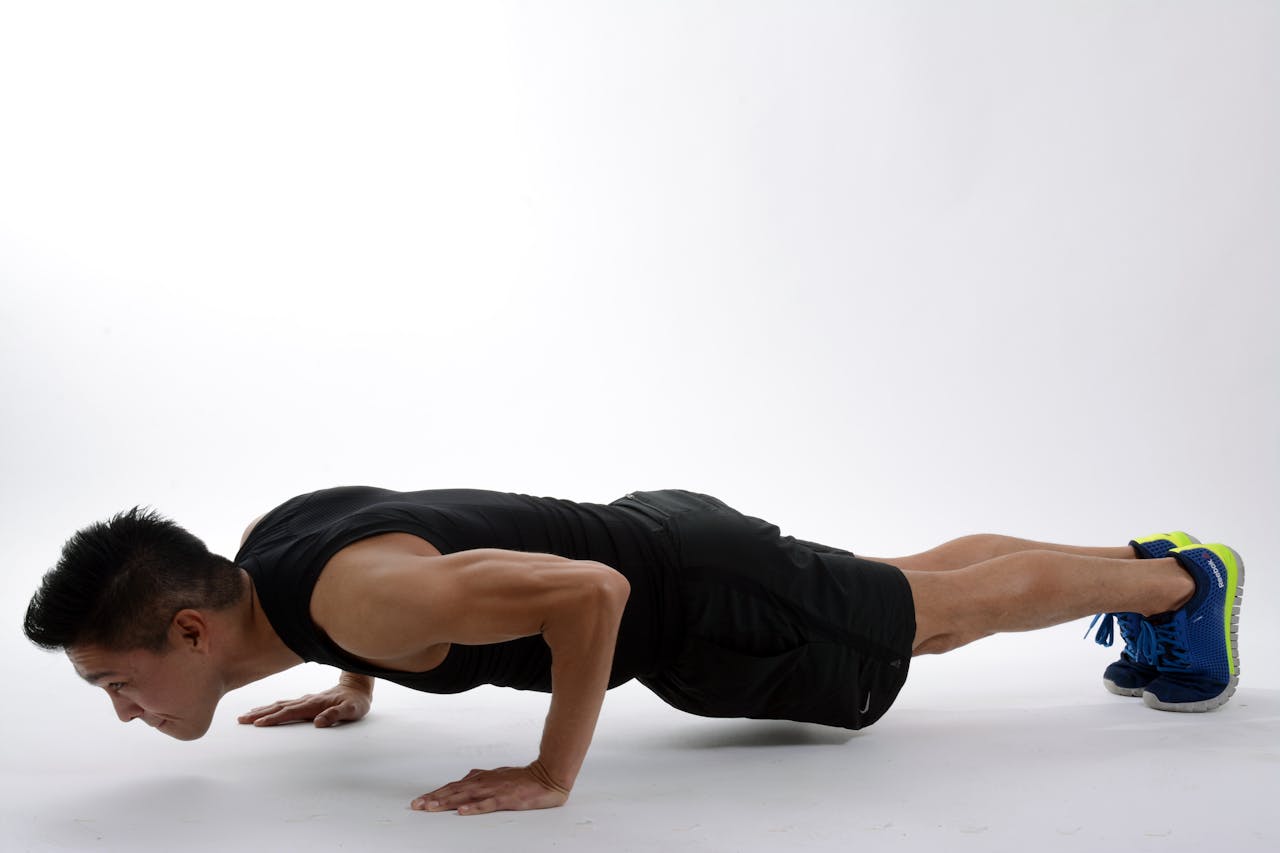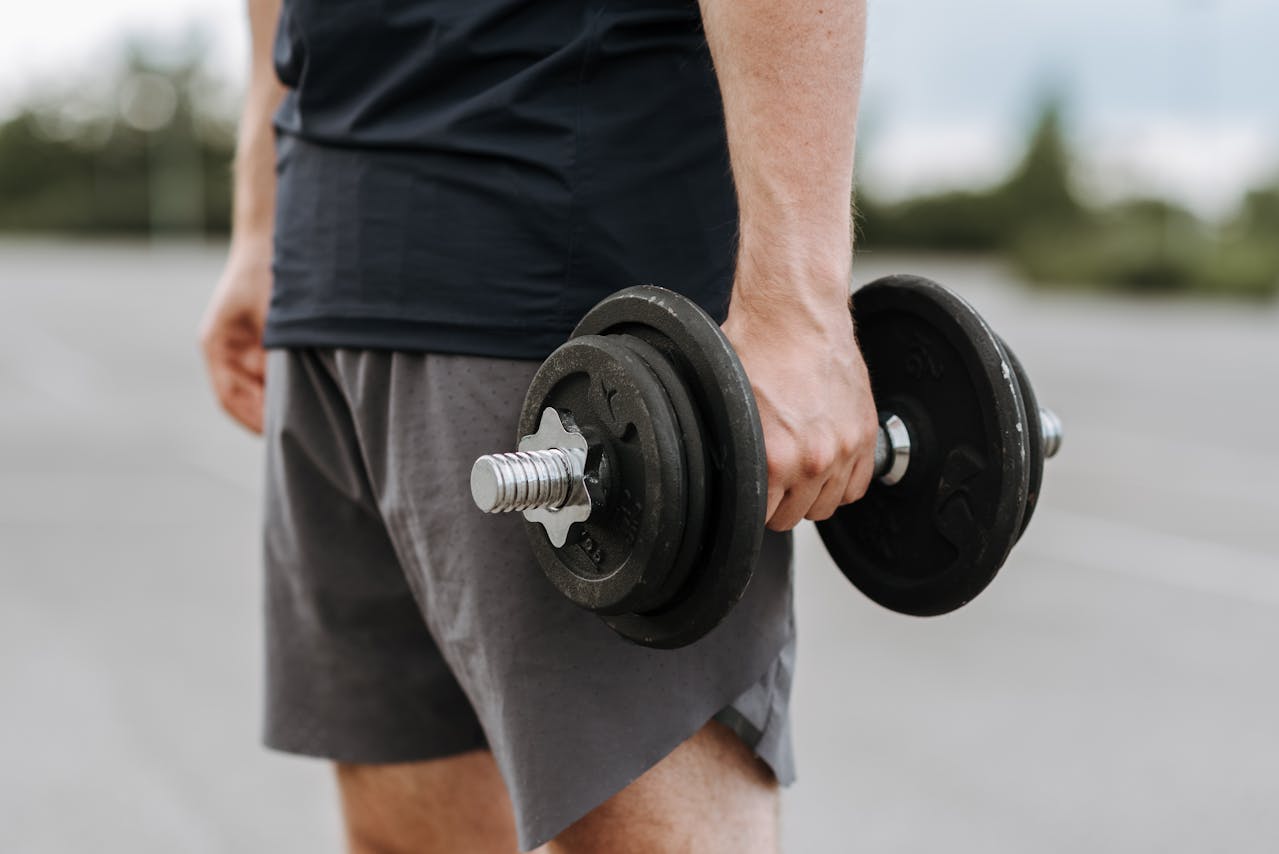Fitness is more than just physical strength; it is the cornerstone of a man’s ability to live an energetic and resilient life. It reflects the capacity to perform daily tasks with vigor, maintain energy for recreation, and respond effectively to emergencies. Achieving and maintaining fitness is not a luxury but a necessity, and it is never too late—or too early—to start. Whether through aerobic exercises, strength training, or balanced nutrition, the path to fitness is a holistic one. A well-rounded approach ensures that every man can improve his health, strength, and endurance, regardless of age or lifestyle.
The Core of Men’s Fitness: Building Muscle and Strength
Muscle mass naturally declines with age, with an average loss of five to seven pounds (2-3.2 kg) of muscle per decade for inactive individuals. This phenomenon underscores the importance of strength training as a cornerstone of fitness. Resistance exercises not only rebuild lost muscle but also enhance metabolism, bone density, and overall vitality. As the saying goes, "use it or lose it." Strength training involves progressive overload—challenging muscles to adapt and grow stronger. Incorporating compound movements like squats, deadlifts, and bench presses into workouts ensures that multiple muscle groups are engaged, delivering maximum results in minimal time.
Cardiovascular Workouts: The Heart of Fitness
While strength is essential, cardiovascular fitness holds the key to longevity and overall health. Aerobic exercises like running, swimming, or cycling strengthen the heart, improve circulation, and regulate blood pressure and cholesterol levels. Prioritizing cardiovascular workouts, even with a busy schedule, provides significant health benefits. It ensures that the body’s largest muscle groups are active and the cardiovascular system is robust. For those pressed for time, high-intensity interval training (HIIT) offers an efficient solution, combining short bursts of intense activity with recovery periods to maximize results in less time.
Nutrition: Fueling the Fitness Journey
Fitness is built in the gym but supported in the kitchen. A balanced diet rich in whole, natural foods is critical for sustaining energy and aiding recovery. Emphasizing variety ensures the intake of essential vitamins, minerals, and macronutrients. Proteins, carbohydrates, and fats each play vital roles in fitness. Protein is crucial for muscle repair and growth, while carbohydrates provide the energy needed for workouts. Healthy fats, often overlooked, are essential for hormone production and overall health. Avoiding extreme diets and instead focusing on moderation and balance helps maintain a sustainable fitness lifestyle.
Safety and Sustainability in Fitness
Maintaining fitness is a lifelong commitment, and safety should always be a priority. Proper technique, whether in lifting weights or performing aerobic exercises, minimizes the risk of injury and ensures effectiveness. Warm-ups and cool-downs are essential for preparing the body and aiding recovery. Overtraining, on the other hand, can lead to burnout and hinder progress. Listening to the body, allowing adequate rest, and gradually increasing intensity are key to a sustainable fitness journey. Consistency, not intensity, is the hallmark of long-term success.
The Mental Benefits of Fitness
Beyond the physical, fitness offers profound mental health benefits. Regular exercise reduces stress, boosts mood, and enhances cognitive function. The endorphins released during workouts create a natural "high," fostering a sense of well-being. For men, fitness becomes a way to build resilience—not just physically but mentally—equipping them to handle life’s challenges with clarity and strength. This holistic impact makes fitness an indispensable part of a fulfilling life.













